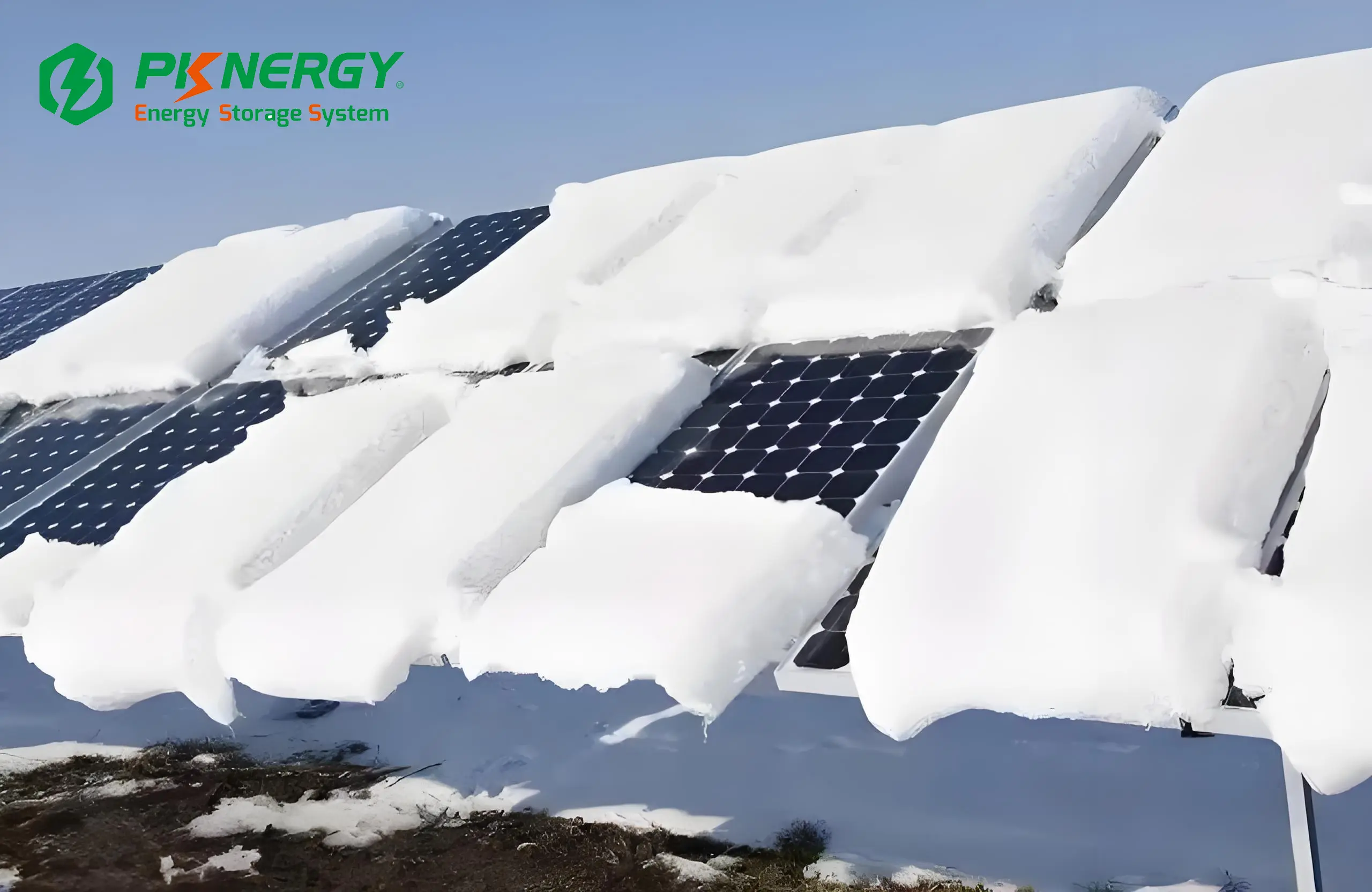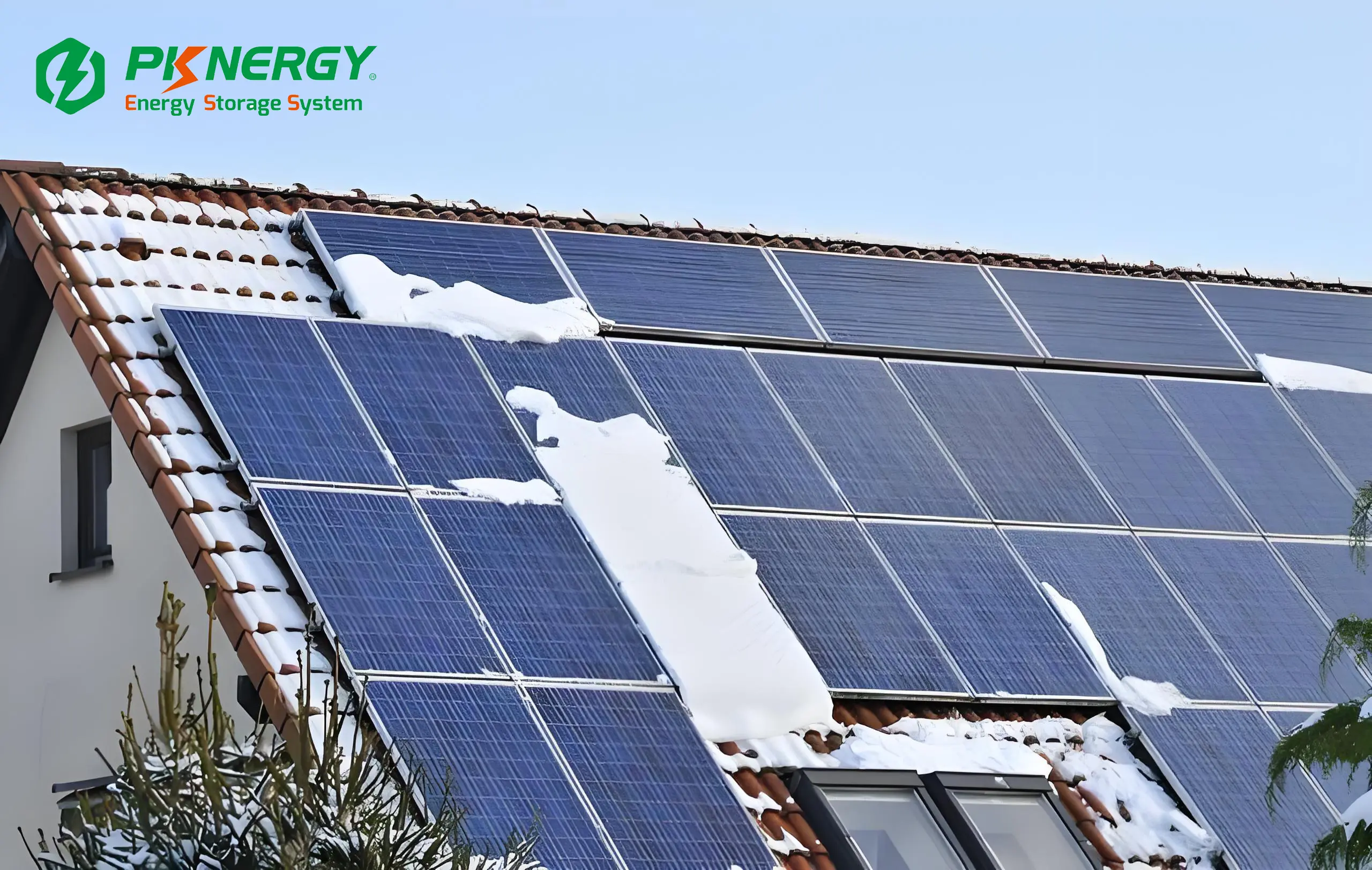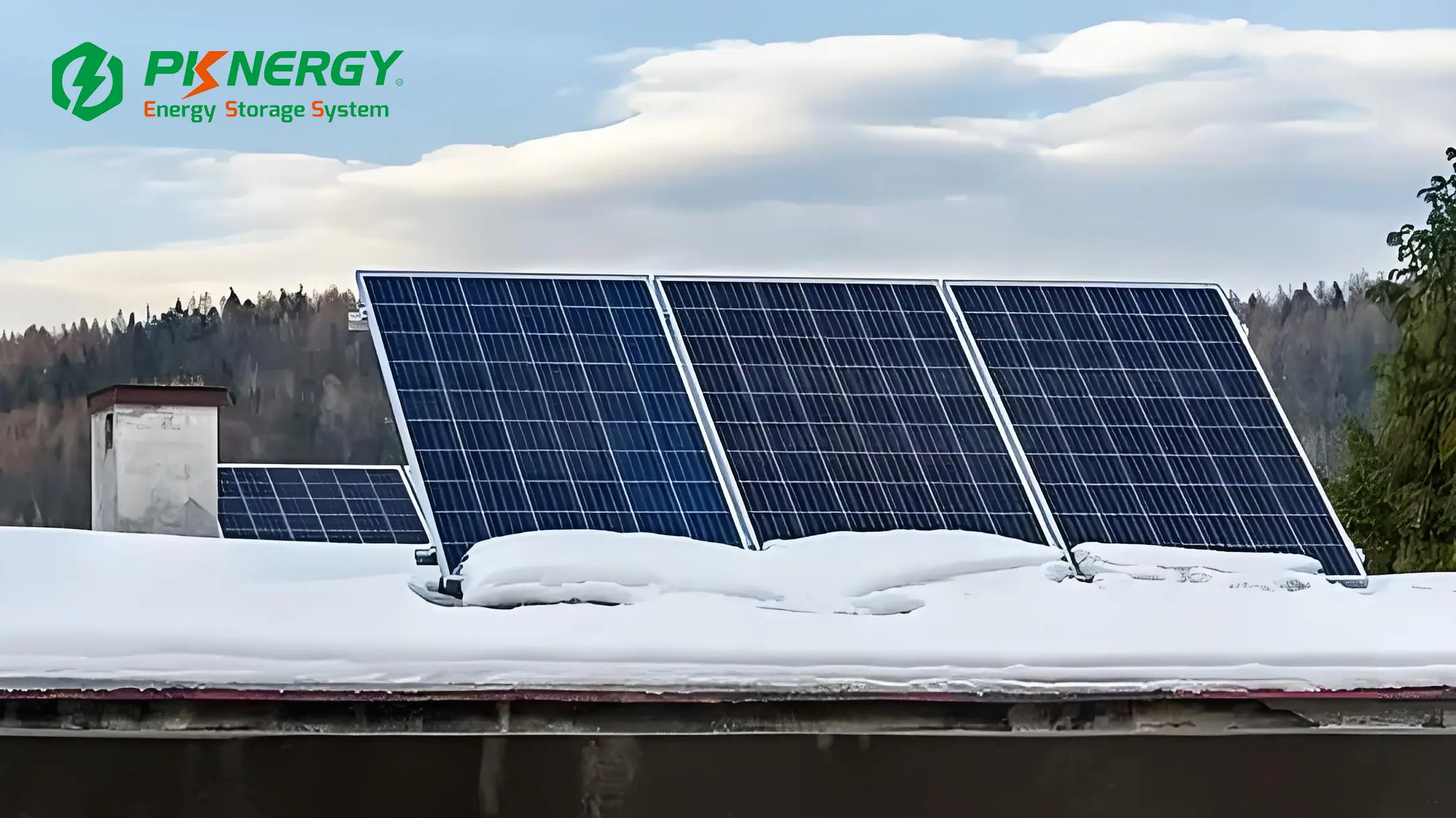For households with solar storage systems, these systems provide stable electricity and reduce energy costs. However, they also introduce new challenges, especially in winter. As colder months approach, you might wonder if your solar system can perform as reliably as it does in summer. Can snow damage solar panels? If you own or plan to install a solar storage system, this article will help you understand the impact of winter conditions and offer solutions to maintain energy stability.
Can Home Solar Storage Systems Operate in Snowy Weather?
A home solar storage system typically consists of solar panels, inverters, and storage batteries. While inverters and batteries are usually installed indoors, solar panels face harsh winter conditions. Surprisingly, solar panels can be more efficient in winter than in summer!
Solar panels generate energy by capturing photons, not heat. The optimal operating temperature for silicon-based solar panels is 25°C (77°F). In summer, direct sunlight can raise panel temperatures above 40°C (104°F), reducing efficiency. However, shorter daylight hours in winter lead to lower overall energy production.
Snow accumulation on solar panels can temporarily block sunlight, but most panels are designed to allow snow to slide off, especially when installed at an angle. As sunlight warms the panels, the snow often melts and slides away. This means that solar panels can still generate some electricity during snowy conditions, as long as sunlight is sufficient.
During overcast days, solar output may decrease, but panels can still capture scattered light and convert it into energy. Although output is lower than on sunny days, it can still meet basic household needs. To maintain stability in winter, increase battery capacity and ensure proper system maintenance. A well-maintained battery can store enough energy during sunny periods to supply power at night or during low-light conditions. Adjusting power usage to match peak sunlight hours also maximizes solar utilization.
Benefits of using solar energy storage systems in winter
Despite the shorter daylight hours and colder weather in winter, solar energy storage systems still have many significant advantages in winter. Here are some of the key benefits of using solar energy storage systems in winter:
-
Continuous power supply
Even in winter when sunshine hours are short, the solar energy storage system can store the energy generated during the day through energy storage batteries to ensure power supply at night and on cloudy days. This provides homes and businesses with stable energy and avoids the inconvenience of power outages during cold weather.
-
Save energy costs
Even with fewer hours of sunshine in the winter, solar systems can still be effective in lowering your electricity bills. By storing excess electricity in an energy storage system and using it during periods when electricity bills are higher or when the grid is out of power, energy costs in winter can be further reduced.
-
Improve system efficiency
Lower temperatures in winter help solar panels work more efficiently. Silicon-based solar panels have higher conversion efficiency at low temperatures, which means that even if there is insufficient sunlight, the energy conversion rate of a single solar panel may be better than that under high temperatures in summer.
-
Enhanced grid independence
Solar energy storage systems can help a home or business achieve greater grid independence during the winter, especially when experiencing severe weather and power outages. By storing the power generated during the day in energy storage batteries, users can continue to receive power support when the power grid is interrupted, reducing dependence on the public power grid.
-
Reduce carbon emissions
Even during the winter, using solar energy storage can still be an effective way to reduce your carbon footprint. Solar energy is a clean, renewable energy source, and the continued use of solar systems during the winter can help households and businesses reduce their reliance on fossil fuels and further promote environmental protection.
Can Hail Damage Solar Panels?
Solar panels are designed to withstand impacts, including hail. Most panels undergo rigorous testing to ensure they can endure hailstorms. However, large and severe hail could still cause damage. After extreme weather, inspect your panels to check for potential issues.
How to Optimize Solar Systems for Winter Use?
Adding a storage battery to your solar system is a smart choice for winter. Batteries store excess energy generated during the day, which can be used during power outages or at night. Even if solar output is insufficient, storage batteries can be charged from the grid, creating a reliable backup power source.
Best Storage Battery Type for Winter
Lithium iron phosphate (LiFePO4) batteries are the best choice for winter because of their stability, high energy density, long lifespan, and low maintenance needs. While lead-acid batteries are cheaper, they perform poorly in cold weather and require more maintenance. LiFePO4 batteries offer superior performance and reliability in winter conditions.
Do I Need to Clear Snow from My Roof or Solar Panels?
- Light Snow: The tilt and absorbed heat of panels often melt and clear light snow on their own. It is safer to wait rather than attempt to clear snow, as climbing on the roof poses risks and may damage panels.
- Heavy Snow: Manual clearing is necessary for thick snow, which blocks sunlight and reduces output. Use a soft snow brush to gently clear snow, avoiding scratches on the panel surface.
Benefits of Snow for Solar Panels
Snow can help clean panel surfaces, improving efficiency, similar to rain. Additionally, snow on the ground reflects more sunlight onto panels, boosting energy production. Therefore, a moderate amount of snow can be beneficial, as it cleans and enhances panel performance.
How Much Battery Capacity Is Needed for Winter?
The required battery capacity depends on household energy consumption, solar output, and local sunlight conditions. Generally, increasing battery capacity helps manage shorter days and potential low-output days during winter. Consult professionals to determine optimal capacity based on your energy load and system size.
How to Increase Solar Panel Efficiency in Winter
- Clear Snow: Keep panels exposed to sunlight for better output. Avoid using high-pressure cleaners, scrapers, or chemical agents, which can damage panel surfaces.
- Adjust Tilt Angle: Winter sunlight is lower, so adjusting the panel tilt can increase sunlight capture. The ideal tilt angle in winter is your latitude plus 15°.
- Regular Maintenance: Inspect connections, cables, and system components to ensure efficiency.
- Use Efficient Components: High-efficiency inverters and panels minimize conversion loss, increasing overall energy output.
Common Winter Issues with Solar Storage Systems
- Snow Coverage: Snow blocks sunlight, reducing output. Timely clearing helps maintain efficiency.
- Cold Temperatures: Cold temperatures can affect battery performance. Store batteries in warm areas for better efficiency.
- Low Sunlight: Shorter days can reduce solar output. Increasing battery capacity can ensure sufficient power.
Solar Storage System Performance in Extreme Cold
Extreme cold can slow down the electrochemical reactions in lithium batteries, reducing charging and discharging efficiency. To counter this, store batteries in insulated environments or use heating devices to maintain a suitable temperature. Regularly inspect all system components to ensure they are functioning correctly.
Maximizing Solar System Use During Winter
- Increase Storage Capacity: With shorter daylight hours and potential bad weather, more battery capacity is advisable for consistent power supply.
- Use Supplemental Energy: In case of solar shortages, consider using a diesel generatoror other renewable energy sources as backups.
Conclusion
While winter presents challenges for home solar storage systems, proper maintenance and management can keep them running efficiently. Clearing snow, adjusting panel angles, and maintaining battery charge can ensure stable power supply during the colder months. By following these guidelines, you can make the most of your solar investment, even in winter, reaping both environmental and economic benefits.
Save Money, Protect Environment
PKNERGY helps you reduce your energy bills for your home solar energy storage, store your solar energy for use anytime- at night or during an outage.







